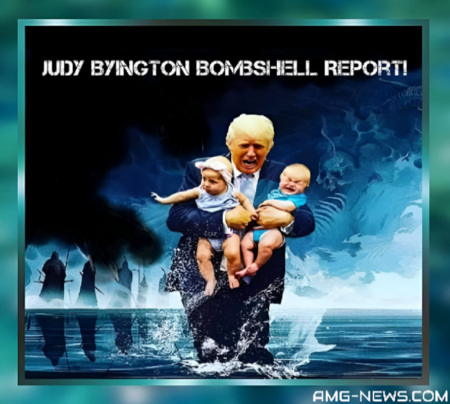Breaking News: Is Ukraine Planning to Build a Nuclear Bomb If U.S. Aid Is Cut?
Ready to uncover the truth? Sick of the lies? Join our Telegram Channel now. It’s time for the real story! Stay informed! My gratitude to all my readers!
In an astonishing turn of events, a report obtained by The Times suggests that Ukraine could begin developing a nuclear weapon within months if the United States cuts off military aid under the Trump administration. The repercussions of this potential action could reshape the global power structure, reignite nuclear tensions in Eastern Europe, and provoke worldwide anxieties about a new arms race on the world stage.
The United States has long provided significant military aid to Ukraine, a lifeline to the embattled nation defending itself against Russian aggression. However, amid the potential shift in U.S. foreign policy under President Trump, this lifeline could be severed. According to recent reports, Ukraine is exploring a shocking contingency plan: building its own nuclear arsenal. The implications of this decision are profound, raising urgent questions about global stability, nuclear non-proliferation, and international security.
Section 1: Why U.S. Military Aid to Ukraine Is So Vital
Since the 2014 Russian annexation of Crimea, the U.S. has supported Ukraine with both military resources and political backing. American aid has served as a deterrent against further Russian aggression and has given Ukraine the means to defend its sovereignty. Cutting off this aid would create an immediate vulnerability, leaving Ukraine exposed to Russian influence and forcing the nation into desperate decisions.
Ukraine, sandwiched between Europe and Russia, is in a precarious position. With its military heavily reliant on U.S. technology, equipment, and intelligence support, an abrupt aid withdrawal would cripple its defenses. This dependency makes the current administration’s position on foreign assistance a central factor in Ukraine’s next steps. If the U.S. turns its back, will Ukraine be forced to turn to nuclear deterrence?
Section 2: The Feasibility of Ukraine Building a Nuclear Bomb
According to the report from The Times, Ukrainian officials believe they could produce a basic nuclear device within months. While such a weapon would lack the sophistication of U.S. or Russian arsenals, it would nonetheless represent a formidable deterrent. Experts suggest that the initial stages would involve using plutonium extracted from Ukraine’s own reactors.
Creating a “rudimentary” bomb isn’t a stretch, given Ukraine’s existing knowledge of nuclear technology. Historically, Ukraine inherited a sizeable portion of the Soviet Union’s nuclear arsenal but surrendered these weapons in exchange for security assurances under the 1994 Budapest Memorandum. That agreement, however, has proven fragile. With waning U.S. support, Ukraine’s nuclear intentions highlight both the broken promises of that accord and the potential for a destabilized Europe.
BREAKING VIDEO: Convenience Store Owner Threatens Man At Gunpoint After Hitting His 5th Lottery Winner In 3 Months:
Section 3: The Timeline to a Fully Operational Nuclear Weapon
While constructing a basic nuclear bomb may be possible within months, developing a fully operational nuclear arsenal with an advanced delivery system could take years. Estimates from experts suggest a five-year timeline; however, Ukrainian officials seem confident they could accelerate this process. A successful endeavor would position Ukraine as a nuclear state, forcing Russia and NATO to recalibrate their defense postures.
The question remains: how realistic is it for Ukraine to build, test, and deploy a nuclear weapon under the global radar? The technological hurdles are considerable, especially without international support. But Ukraine is reportedly exploring creative solutions, including rapid production models reminiscent of the infamous “Fat Man” bomb dropped on Nagasaki, a weapon developed in wartime conditions with minimal testing.
Section 4: Historical Context – The Shadow of the Cold War Returns
Nuclear tensions are far from a new issue in Eastern Europe. The Cold War era saw an arms race that kept the world in constant fear of a nuclear holocaust. A Ukrainian nuclear bomb would mark the first new nuclear-armed state in decades and revive fears of that dangerous era. The prospect of a modern Eastern European nuclear arms race could pull NATO, the U.S., and Russia back into an aggressive standoff.
►Revelation and Bible Prophecy: An Event That May Leave 290 Million Americans Dead in its Wake!
The Budapest Memorandum initially assuaged fears of a nuclear-armed Ukraine. In exchange for giving up its inherited arsenal, Ukraine received assurances of territorial integrity from Russia, the U.K., and the U.S. Yet, the Russian annexation of Crimea in 2014 effectively nullified those assurances, leaving Ukraine with little trust in diplomatic promises. The lesson Ukraine appears to have learned is a harsh one: security might require a nuclear deterrent.
Section 5: The International Community’s Stance on Ukraine’s Nuclear Intentions
If Ukraine begins nuclear development, it will face condemnation from the international community, likely including the United Nations and the International Atomic Energy Agency (IAEA). While many nations support Ukraine’s right to self-defense, a move toward nuclear armament may cross an unspoken line. Global non-proliferation treaties could be undermined, and trust in the entire nuclear oversight system could deteriorate.
The global reaction to Ukraine’s nuclear ambitions would likely be swift. Countries across Europe would face increased security risks, and NATO could be compelled to reconsider its strategies and obligations. Such a decision from Ukraine would not only jeopardize diplomatic relations but could also trigger economic sanctions, further isolating the country. Despite these risks, the existential threat posed by Russia may make these consequences worth bearing for Ukraine’s leaders.
EXPOSED: Viral Content! Scientists from Fukushima University of Japan just proved this silent clog is the real cause of BPH in millions of men…
Section 6: Possible Repercussions for the United States
If Ukraine goes nuclear, the U.S. could find itself in a precarious position. On the one hand, it would face global criticism for indirectly pushing a nation towards nuclear armament by cutting aid. On the other, it could risk estranging key allies if it fails to condemn Ukraine’s actions. The Trump administration could be blamed for triggering an Eastern European nuclear arms race, potentially impacting America’s role as a peacekeeper.
Such an outcome would highlight the unintended consequences of America’s shifting foreign aid priorities. In recent years, the U.S. has attempted to re-evaluate its commitments abroad, often with little regard for the potential fallout. But with nuclear weapons back in the mix, this calculus changes. The Trump administration may soon have to decide whether the cost of abandoning Ukraine is worth the risk of a nuclear escalation in Europe.
Section 7: What This Means for Global Nuclear Non-Proliferation
The Ukraine situation raises a broader question: is the global nuclear non-proliferation framework crumbling? If Ukraine successfully develops a bomb, other nations might feel emboldened to follow suit. The possibility of a domino effect in nuclear proliferation could put the Non-Proliferation Treaty (NPT) under unprecedented strain, undermining decades of diplomatic progress.
If nuclear armament becomes a viable choice for nations under threat, the world could be on the brink of a new nuclear age. Should countries no longer feel secure under non-proliferation agreements, the likelihood of weapons stockpiling increases, and with it, the probability of conflict. Ukraine’s potential bomb could mark the beginning of this troubling shift.
Section 8: The Ethical Debate – Right to Self-Defense vs. Global Safety
On one hand, Ukraine has every reason to defend itself, given its vulnerable position. Nuclear deterrence could theoretically provide the peace of mind it seeks. Yet, on the other hand, the very existence of nuclear weapons in Eastern Europe would place millions at risk, including the Ukrainian population.
This ethical dilemma encapsulates the fragile balance between a nation’s right to self-preservation and the global community’s right to safety. Is it justifiable for Ukraine to pursue such drastic measures? How much responsibility falls on global superpowers like the U.S., and what role should international bodies play in guiding such decisions? These questions have no simple answers, and the gravity of each side is likely to haunt the decision-makers for years to come.
Conclusion: A Pivotal Moment in Global History
The prospect of a Ukrainian nuclear bomb isn’t just a headline; it’s a potential turning point in global security. As President Trump weighs his decisions on U.S. aid to Ukraine, the consequences could echo far beyond Eastern Europe. Whether Ukraine’s nuclear intentions come to fruition or not, the mere possibility has already reshaped the world’s political landscape, forcing a reassessment of what “security” truly means.
In a world that hoped to leave nuclear threats behind, Ukraine’s next steps could plunge us back into a dark era of global tension. The world watches, waiting to see if history will indeed repeat itself.








![BREAKING! CODE GREEN: TRUMP DEPLOYS NATIONAL GUARD IN LOS ANGELES – MILITARY OPERATION TO LIBERATE CALIFORNIA UNDERWAY | NEWSOM SURRENDERS, TROOPS MOVE IN [VIDEO]](https://amg-news.com/wp-content/uploads/2025/06/Trump-National-Guard-California-450x253.png)




5 Comments
Yes, dear.
Obviously Ukraine doesn’t understand, Trump is not playing this time it would be a grave mistake.
There is no such thing as a nuclear bomb. Hiroshima and Nagasaki were bombed by squadrons of bombers with napalm bombs. It seems to me more and more that this site is run by insane creatures that cannot be called human. One monstrous lie and it is growing.
You think nukes don’t exist? I agree this website is a clown show and has strayed way of the path of real news but nukes are absolutely a real thing.
You must be kidding! Napalm bombs don’t have a pressurized shock wave like a nuclear blast does, nor do they turn sand into glass like a nuclear blast does, or cause radiation poisoning like a nuclear blast does, or burn shadows into concrete, or burn out black letters on white type written paper. If you are really serious, please take your BS elsewhere!